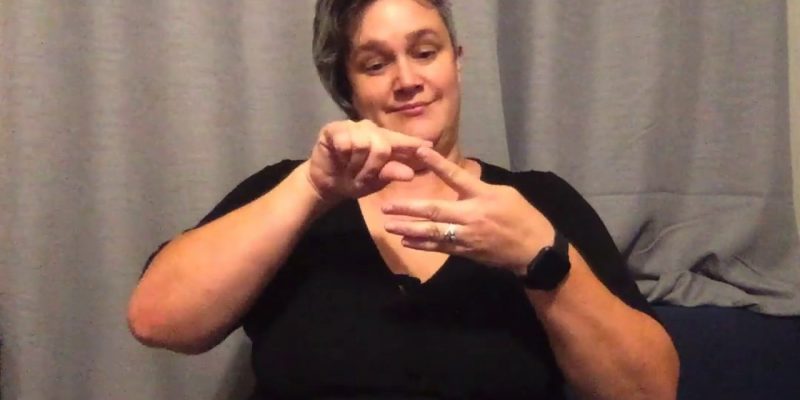Transcript: Hello there! I am going to be discussing 4 different topics related to teaming. I’ll have the other 3 videos posted later and there will be links as they come available so you can scan through the series where I welcome your input about the info we need to better support each other in teaming situations. In this first one, I want to focus more on a different type of teaming. Instead of interactive teaming, this is more of a passing of the baton to the next team coming in. This could happen in situations where you are in the hospital for a morning shift, and then getting switched out for the afternoon evening and you need to impart what knowledge you have before leaving.
This can also happen in VRS interpreting when a call may need to be transferred out due to a closing center, or a colleague coming to physically trade spots with you. These seem to be the most prevalent instances of this type of hand-off interpreting, when most of our work is either done solo or as an interactive team working at the same time.
If an interpreting job is being handed off, what is it that you want to know? If you are working in a hospital, what all should be included? A patient’s preferred language or terminology? Signing styles? What has been happening throughout their stay? What tests or medications that they have already had? Any issues or unexpected signs that came up? Was there anything unexpected that can now be relayed to the next interpreter? Do you include information about plans for upcoming tests, medications or if plans for discharge or delayed due to needing to be cleared by PT, etc. What kinds of information do you think need to be included while trading off?
If you are the interpreter walking into the situation, sometimes you don’t even know what you don’t know and what you might need to ask. You may arrive only to have the original interpreter just tell you to have a good day on their way out the door. Or perhaps there was a gap in service so there was no one to get information from or chain of conveyed knowledge. The issues come from the fact that nurses will consistently “give report” where they work together to hand off their patients with information about what has happened so far, as well as what is planned for the upcoming shift. I think interpreters would do well to take a page out of their book here.
When it comes to VRS interpreting, it may that interpreters are physically changing seats, or transferring out to another call center. What information do you think the next interpreter needs in this case? Who is involved? Purpose for the call (if you know it)? Is it important to include the reason for the switch as well? It could be that the leaving interpreter needs a break, is in over their heads or is not wanted by the callers for whatever reason. I’ve considered this information, can you think of anything else that I have missed? Especially in these two scenarios where you are trading places and handing off to the next interpreter, what else do you think they should know? Thanks for watching!
ASL Village offers mentoring, workshops and presentations for sign language interpreters (at all levels) who seek to improve their skills or gain certification.

 Add to favorites
Add to favorites











